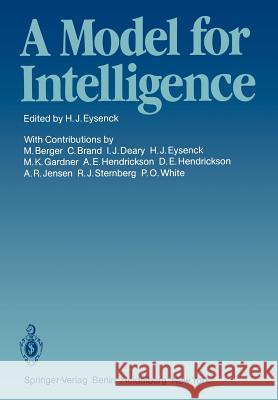A Model for Intelligence » książka
A Model for Intelligence
ISBN-13: 9783642686665 / Angielski / Miękka / 2011 / 272 str.
H. J. Eysenck The concept of 'intelligence' has been with isfactory state of the concept of intelligence. Cronbach (1957), in his well-known presi- us for a long time. Some two thousand years ago, Plato and Aristotle singled out cogni- dential address to the American Psychologi- tive from orectic factors in behaviour, and cal Association, referred to the two discip- lines of scientific psychology, meaning the Cicero coined the term 'intelligentia', which has since assumed such universal accep- experimental and the correlational. He ad- tance. It is only in recent years, of course, vocated their unification; only by joining that psychologists have attempted to define together in the attempt to build a truly sci- the concept more closely, to carry out exper- entific psychology could such an objective iments, and to try and measure it. The result be achieved. has been rather curious. On the one hand My own view has always been the same we have the overwhelmingly successful ap- (Eysenck 1967 a), and in the companion vol- plication of measures of IQ in education, ume to the present one, I have tried to show industrial selection, vocational guidance, of- how such a unification can be brought ficer selection, and many other areas. On about in the attempt to construct A Model the other we have large-scale criticism of for Personality (Eysenck 1981 a).











